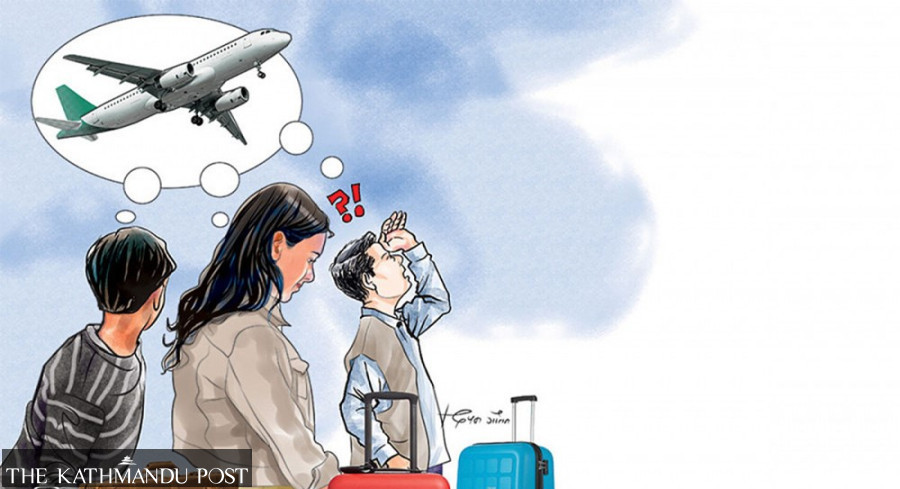National
‘No objection’ letter seekers overwhelm education officials
Ever-increasing number of foreign education aspirants leave Nepali colleges desperately short of students.
Binod Ghimire
As many as 2,000 students apply for the No Objection Certificates in peak days. However, the maximum number of applications the office under the Ministry of Education, Science and Technology clears in a day is around 1,000, even with the officials working 10 to 12 hours. As a result, thousands of applications pile up, leaving students to queue up for hours, sometimes for multiple days.
The ministry’s reluctance to address the problems facing the office issuing the certificates led to its chief Shanti Ram Poudel, an undersecretary, resigning on Wednesday. On Thursday, the ministry secretary approved his resignation, saying he would not backtrack.
“Students accused me of failing to work promptly but my concerns with the higher authorities were not heeded. I therefore felt it was inappropriate to continue in the position,” he told the Post. “I believe if you fail to perform, you just quit.”
After Poudel’s resignation, the ministry has deputed Basu Dev Osti to oversee the task.
Poudel said that besides the perennial problem of staff shortage, there is often a problem with servers, and the internet bandwidth is often too low to handle workload. He said he had made frequent requests for an increase in the capacity of the server and internet bandwidth along with deputing adequate staff, but all his requests fell on deaf ears. As of Wednesday, as many as 8,000 applications were pending.
If Poudel's claim is anything to go by, an official can verify 100-150 applications a day during their duty hour, and only five staff members are stationed in the office. “It is impossible to clear all the applications in a single day with the people and infrastructure we now have,” he said. “Occasional problems on the server make things worse.”
Following his resignation, Sumana Shrestha, the minister for education, visited the Sanothimi-based office and directed officials to increase the number of counters dealing with students. A team of scout volunteers was also mobilised to help the applicants. Moreover, the minister assured officials of necessary support.
The number of aspirants for foreign studies has soared recently while domestic academic institutions are struggling to get students.
A total of 66,296 students have received the certificate until March 6 of the current fiscal year. The maximum number of certificates was issued for Japan, followed by Canada and Australia. The United Kingdom and the United States hold the fourth and the fifth spots, respectively.
In the past few years, the highest number of applicants were for Australia but students have turned towards Japan and Canada after the Australian government imposed more stringent immigrant policies.
“No objection” is necessary to get clearance from the Nepal Rastra Bank to send money abroad.
As many as 110,000 students acquired “no objection” papers in the previous fiscal year. Nepali students spent Rs 67 billion on their foreign studies in the year.
The number was 114,000 in the fiscal year 2021-22. It doesn’t include thousands of students enrolled in Indian academic institutions. With four months remaining of the present fiscal year, the number of students acquiring such certificates could easily breach the 100,000-mark.
The huge outflow of students has become a headache not just for domestic educational institutions but also for the government. As the University Grants Commission reports, 555 colleges affiliated to various universities had less than 100 students in the academic year 2022-23.
An additional 270 such colleges had fewer than 200 students, according to the government entity overseeing tertiary education in the country. They jointly comprise more than half of the total—1,155—colleges in the country.
Tribhuvan University is already in the process of phasing out some of its programmes due to a lack of students. On their part, a number of colleges affiliated to the TU haven’t renewed their affiliations for different programmes after student enrollment slipped.
Prime Minister Pushpa Kamal Dahal has expressed his worries on several occasions about the fast growth in the number of Nepali youths going abroad. However, the government has failed to introduce any concrete initiatives to retain them.




 15.12°C Kathmandu
15.12°C Kathmandu















